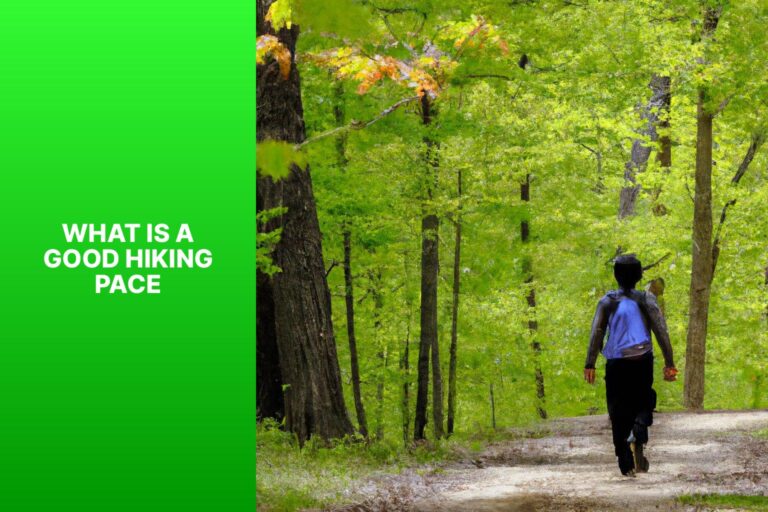Why is Hiking Fun
Hiking is a popular outdoor activity that offers an array of exciting experiences and numerous benefits. Exploring nature on foot provides a unique thrill that captivates both outdoor enthusiasts and nature lovers. There are several key factors that make hiking such a fun and rewarding activity.
One of the main reasons why hiking is enjoyable is the thrill of exploring nature. Immersing oneself in natural surroundings allows for a deep connection with the environment and offers a sense of tranquility and peace. The stunning scenic views encountered during hikes showcase the beauty of nature and provide a visual feast for the eyes. hikers often have the opportunity to encounter wildlife, observing animals in their natural habitats and connecting with the natural world in a direct and profound way.
Beyond the thrill of exploration, hiking offers numerous physical and mental benefits. The physical aspect of hiking promotes fitness and endurance by providing a full-body workout. As hikers navigate various terrains and inclines, their muscles are engaged, cardiovascular health is improved, and stamina is built. Simultaneously, hiking also acts as a form of stress relief and enhances mental well-being. The serenity of nature, the fresh air, and the physical activity can help reduce stress, alleviate anxiety, and improve overall mood. studies have shown that hiking can enhance cognitive function, including memory, creativity, and problem-solving skills.
Hiking is not only a solo adventure but can also be a means of connecting with others and building relationships. Sharing the hiking experience with friends, family, or even strangers can foster a sense of camaraderie and create lasting bonds. The shared experiences, the challenges overcome together, and the memories created while hiking can strengthen relationships and provide a sense of belonging.
Preparing for a hiking adventure is crucial to ensure a safe and enjoyable experience. It involves choosing the right trail that suits one’s fitness level and preferences, considering factors such as distance, difficulty, and scenery. Equipping oneself with the necessary equipment and gear, such as proper hiking shoes, a backpack, and weather-appropriate clothing, is essential for a comfortable and safe hike. understanding and practicing safety measures and precautions, such as carrying a map or GPS device, staying hydrated, and respecting nature, are crucial for a successful hiking expedition.
Key takeaway:
- Hiking immerses you in natural surroundings: Exploring nature while hiking allows you to truly connect with the environment, experiencing its beauty and tranquility.
- Hiking offers stunning scenic views: As you hike through different terrains, you’ll be rewarded with breathtaking vistas, offering a sense of awe and wonder.
- Hiking encounters with wildlife: Hiking allows you to come across various forms of wildlife, giving you an up-close experience with nature’s inhabitants.
The Thrill of Exploring Nature

Photo Credits: Jasonexplorer.Com by Michael Moore
Unleash your adventurous spirit and dive into the captivating world of hiking! In this section, we embark on a thrilling journey, exploring the untamed beauty of nature. Get ready to immerse yourself in the natural surroundings, be awestruck by stunning scenic views, and perhaps even encounter some curious wildlife along the way. So lace up your boots, grab your backpack, and let’s delve into the exhilarating realm of hiking and all the wonders it has to offer.
Immersion in Natural Surroundings
When hiking in natural surroundings, immersing yourself in the beauty of the landscapes, vibrant colors, and soothing sounds of nature allows you to fully connect with the environment and reap numerous benefits. Consider the following aspects when immersing yourself in nature:
– Enjoy the sights and sounds: Immerse yourself in the breathtaking beauty of the natural surroundings by embracing the magnificent landscapes, vibrant colors, and the symphony of soothing sounds that nature offers.
– Connect with wildlife: Explore the trails and take the time to observe and appreciate various wildlife species thriving in their natural habitat. This will provide you with a captivating and educational experience.
– Appreciate the plant life: Pay attention to the diverse range of plant species that coexist in these natural surroundings. From towering trees to delicate flowers, each unique plant has its own characteristics worth learning about.
– Engage your senses: Engage all your senses fully during your hiking experience. Feel the rough texture of rocks or tree bark, take deep breaths of fresh air or the sweet scent of wildflowers, and delight in the symphony of rustling leaves or chirping birds.
– Experience tranquility: Take a moment to pause and fully absorb the tranquil surroundings. Allow nature to provide you with a peaceful and rejuvenating escape from the hustle and bustle of everyday life.
– Feel connected to the Earth: By treading on the earth and feeling the terrain beneath your feet, you can foster a sense of grounding and a profound connection with the natural world.
By immersing yourself in nature while hiking, you can greatly enhance your overall well-being, develop a deeper appreciation for the environment, and create lasting memories of these extraordinary experiences.
Stunning Scenic Views
When hiking, witnessing stunning scenic views is one of the most captivating aspects. Nature mesmerizes us with its beauty and grandeur. Here are some reasons why stunning scenic views make hiking unforgettable:
– The Splendor of Landscapes: Hiking offers diverse landscapes, from towering mountains and majestic valleys to serene lakes and lush forests. Each turn in the trail reveals breathtaking vistas that showcase the wonders of nature.
– Connecting with Nature: Surrounded by stunning scenic views, hikers can immerse themselves in the tranquility and magnificence of nature. The sights of rolling hills, cascading waterfalls, and vibrant wildflowers evoke peace and harmony, allowing us to feel truly connected to our surroundings.
– Perspective and Reflection: Standing atop a mountain peak or overlooking vast wilderness, hikers gain a unique perspective on the world. The stunning scenic views offer a chance for introspection and appreciation of our place in the grand tapestry of life.
– Photographic Opportunities: Hiking provides ample opportunities for capturing breathtaking images of nature’s beauty. From capturing sunrise and sunset views to playing with light and shadows across the landscape, stunning scenic views make for stunning photographs.
– Inspiration and Serenity: Surrounded by nature’s wonders, hikers often find themselves inspired by the magnificent scenery. Whether finding clarity of thought or inner peace, stunning scenic views provide a sense of serenity and rejuvenation.
If you’re embarking on a hiking adventure, be prepared to immerse yourself in the captivating allure of stunning scenic views. Remember to bring your camera, but most importantly, take the time to soak in the beauty and tranquility of the natural world around you.
Encounter with Wildlife
Encountering wildlife while hiking is an exciting experience that deepens our connection to the natural world. Here are some extraordinary encounters you may have while exploring the great outdoors:
– Spotting majestic deer gracefully grazing in meadows as you hike through the woods is a truly remarkable sight.
– Witnessing a family of squirrels playfully chasing each other up and down trees can provide delightful entertainment during your hike.
– You may come across a variety of bird species, from colorful songbirds to majestic eagles soaring through the sky, or wise owls perched on tree branches.
– Marveling at the sight of cute and furry woodland creatures, such as rabbits, foxes, or raccoons, as they scurry by can capture your attention and bring joy to your hiking experience.
– Catching a glimpse of elusive wildlife, such as bears, mountain lions, or bobcats, will evoke awe and respect for their natural habitat.
– Observing amphibians like frogs or turtles basking in the sun by a peaceful pond adds tranquility to your hiking adventure.
– Discovering delicate and colorful butterflies fluttering around flowers enhances the beauty of the landscape and creates a serene atmosphere.
– Encountering reptiles like snakes or lizards reminds us of the diverse wildlife that exists in our ecosystems.
– Experiencing the thrill of seeing animal tracks or signs left behind allows you to imagine the creatures that roam these trails and adds excitement to your hike.
These encounters provide nature enthusiasts with a unique opportunity to appreciate the wonders of the animal kingdom and understand the interconnectedness of the natural world. In order to ensure both your safety and the well-being of the animals, it is important to maintain a safe distance and respect their habitat when encountering wildlife.
Physical and Mental Benefits of Hiking
Hiking doesn’t just offer breathtaking views and a chance to reconnect with nature, it also provides numerous physical and mental benefits. In this section, we’ll dive into the incredible advantages of hiking – from boosting physical fitness and endurance to relieving stress and enhancing mental well-being. We’ll also explore how hiking can even improve cognitive function, giving you more reasons to lace up your boots and hit the trail. So, let’s uncover the transformative power of hiking for both body and mind!
Physical Fitness and Endurance
Physical fitness and endurance are crucial when it comes to hiking. It is important to keep in mind the following key aspects:
1. Cardiovascular health: Hiking is a fantastic aerobic exercise that not only strengthens the heart but also reduces the risk of heart disease.
2. Strength training: Hiking primarily focuses on developing lower body strength, particularly in the legs and glutes.
3. Weight management: Engaging in hiking helps burn calories and maintains a healthy weight. On average, an individual weighing 150 pounds can burn approximately 400-600 calories per hour.
4. Endurance improvement: Consistently practicing hiking leads to the enhancement of stamina and endurance over time.
5. Bone density: The act of hiking stimulates bone growth, consequently helping to prevent osteoporosis.
I would like to share a personal story about how hiking significantly improved my own physical fitness and endurance. Last summer, I embarked on a hiking expedition to the Grand Canyon. The steep trails and high altitude posed a challenge to my stamina and strength. By the conclusion of the trip, I noticed remarkable improvements in my cardiovascular fitness and leg strength. Hiking not only provided awe-inspiring views but also elevated my levels of physical fitness and endurance.
Stress Relief and Mental Well-being
Stress relief and mental well-being are significant benefits of hiking. Hiking can greatly enhance a person’s health and happiness. Here are some key aspects to consider:
-
Nature immersion: Being surrounded by nature while hiking reduces stress and promotes relaxation. The tranquil environment and soothing sounds of nature calm the mind.
-
Physical activity: Hiking involves physical exertion, which releases endorphins in the body. These natural chemicals act as painkillers and mood boosters, reducing stress and promoting mental well-being.
-
Connection with the outdoors: Hiking allows individuals to disconnect from daily life and connect with the beauty of nature. This improves mental health, reduces anxiety, and increases feelings of happiness and contentment.
-
Mindfulness and stress reduction: Hiking provides an opportunity to practice mindfulness, focusing on the present moment and enjoying the experience. This can help reduce stress, anxiety, and negative thoughts.
-
Time to unplug: Hiking allows individuals to disconnect from technology and the demands of modern life. This break from screens and notifications improves mental well-being by reducing stress and promoting peace.
-
Social interaction: Hiking can be done alone or with others, providing social support and enhancing mental well-being.
Enhancing Cognitive Function
Hiking is a wonderful activity that can enhance cognitive function in various ways. It improves memory, attention, and mental clarity. The physical activity involved in hiking increases blood flow and oxygen to the brain, which in turn boosts cognitive performance. Being in nature and surrounded by green spaces has been shown to improve cognitive function, including creativity and problem-solving abilities.
The challenging terrains and obstacles encountered during hiking contribute to cognitive development. They provide an opportunity to overcome obstacles and think critically. The combination of physical exercise, fresh air, and natural light during hiking can help reduce cognitive decline associated with aging.
Hiking is also known to stimulate the release of endorphins, dopamine, and serotonin, which improve mood and cognitive function. The experience of exploring new trails and navigating unfamiliar environments enhances spatial awareness and cognitive mapping abilities.
In addition, the social interaction and engagement with fellow hikers during group hikes provide intellectual stimulation and cognitive growth. Disconnecting from technology and immersing oneself in nature during hiking promotes mindfulness and improves cognitive well-being.
It is important to note that regular hiking, along with a healthy lifestyle and balanced diet, contributes to long-term cognitive health and overall brain function. So, incorporating hiking into your routine can be a great way to enhance cognitive function and improve your overall well-being.
Connecting with Others and Building Relationships
When it comes to hiking, it’s more than just getting out in nature and enjoying the scenery. The section we’re exploring dives into the magic of connecting with others and building relationships on the trails. Get ready to discover the power of shared experiences and how they create lasting memories that will strengthen your bonds with fellow hikers. So lace up your boots and get ready to embark on a journey of connection, camaraderie, and unforgettable adventures.
Shared Experiences and Bonding
Shared experiences and bonding can be created through hiking, fostering lasting memories and strengthening relationships. Here are ways in which hiking fosters shared experiences and bonding:
– Embarking on a hiking adventure together allows you to share the excitement and anticipation of exploring nature and promotes shared experiences and bonding.
– Hiking allows for meaningful conversations and exchanging stories, deepening connection with others and fostering shared experiences and bonding.
– Facing challenges together, like difficult terrains or physical exertion, builds camaraderie and teamwork, contributing to shared experiences and bonding.
– Supporting each other during the hike cultivates trust and strengthens bonds, leading to shared experiences and bonding.
– Unexpected situations, such as getting lost or encountering wildlife, create shared moments of thrill and excitement, enhancing shared experiences and bonding.
– Taking breaks while hiking provides opportunities for relaxation and enjoying scenic views together, adding to shared experiences and bonding.
– Celebrating milestones and accomplishments during the hike fosters a sense of achievement and shared joy, promoting shared experiences and bonding.
– Documenting the hike through photos or a journal creates a memento of the experience, preserving memories and enhancing shared experiences and bonding.
– Planning future hikes or discussing new trail possibilities strengthens the bond and provides something to look forward to, fostering shared experiences and bonding.
Creating Lasting Memories
Creating lasting memories is a remarkable aspect of hiking. Gazing at scenic views etches unforgettable images in your mind. Towering mountains and picturesque waterfalls leave a lasting impression.
Sharing the hiking experience with loved ones and friends cultivates bonding and deepens relationships. Laughter, accomplishment, and overcoming challenges together strengthen the connection between hikers.
Capturing photographs during the hike helps preserve memories and allows you to relive the adventure later. Stunning landscapes, encounters with wildlife, and group photos become cherished mementos.
Engaging in exhilarating activities during the hike, such as climbing a challenging peak or conquering a daunting trail, creates memories of personal triumph and resilience. The sense of achievement will be remembered for years.
Exploring new trails and destinations opens the door to unique experiences and encounters. Discovering hidden gems, encountering unexpected wildlife, or uncovering a hidden waterfall creates exclusive memories treasured forever.
Embrace the joy of hiking and let the adventure unfold, creating lasting memories cherished for a lifetime.
Preparing for a Hiking Adventure

Photo Credits: Jasonexplorer.Com by Elijah Baker
Get ready to embark on an epic hiking adventure as we delve into the essential guide for preparing your next outdoor exploration. We’ll uncover the secrets to choosing the perfect trail, equipping yourself with the necessary gear, and implementing crucial safety measures. Whether you’re a seasoned hiker or a novice explorer, this section will equip you with the knowledge needed to make your hiking experience unforgettable and safe. So, lace up your boots and let’s get started on this thrilling journey!
Choosing the Right Trail
When choosing a trail, consider these factors for a safe and enjoyable hiking adventure:
1. Trail Difficulty: Assess your fitness level and choose a matching trail. Consider trail length, elevation, and terrain.
2. Trail Length: Determine your preferred hike duration and choose a trail accordingly. Shorter trails work for beginners or those with limited time.
3. Scenery and Views: Decide your preferred scenery, be it mountains, forests, or coastlines. Ensure the trail offers the desired views.
4. Season and Weather: Consider the time of year and expected weather conditions. Some trails may be more challenging or closed during certain seasons.
5. Trail Markings and Navigation: Check for clear trail markings or signage. Bring a map, compass, or GPS device for unfamiliar trails.
6. Trail Accessibility: Determine if the trail is easily accessible or requires additional transportation or permits. Consider distance and logistics.
7. Trail Safety: Research potential hazards like wildlife encounters, steep cliffs, or river crossings. Take precautions and be prepared for emergencies.
8. Trail Reviews and Recommendations: Read reviews or seek recommendations from experienced hikers or online forums.
By considering these factors, you can make an informed decision that aligns with your hiking goals and abilities.
Necessary Equipment and Gear
When hiking, having the right equipment is crucial for a safe and enjoyable experience. Here is a list of necessary equipment to consider:
1. Proper footwear: Invest in sturdy hiking boots that provide ankle support and a good grip.
2. Comfortable clothing: Dress in layers with moisture-wicking fabrics for changing weather conditions. It’s important to know the difference between hiking and trekking.
3. Backpack: Choose a durable, lightweight backpack with enough capacity for essentials like water, snacks, extra clothing, and a map.
4. Navigation tools: Carry a map, compass, or GPS device to stay on the right trail.
5. Water and hydration system: Carry enough water for hydration, consider using a hydration bladder or water bottles.
6. Food and snacks: Pack lightweight, energy-rich snacks for the hike.
7. Sun protection: Wear a hat, sunglasses, and apply sunscreen for sun protection.
8. First aid kit: Carry essentials like bandages, adhesive tape, antiseptic ointment, and pain relievers.
9. Emergency whistle: Use a whistle to signal for help in emergencies.
10. Rain gear: Be prepared for rain showers with a waterproof jacket or poncho.
Safety Measures and Precautions
When hiking, it is crucial to prioritize safety measures and precautions for a safe and enjoyable experience. Considering the following steps will help ensure your safety:
1. Thoroughly research the trail before starting, including details about the terrain, distance, elevation gain, and difficulty level. This will allow you to assess its suitability for your hiking abilities.
2. Check the weather forecast before heading out and avoid extreme conditions such as heavy rain, thunderstorms, and extreme temperatures. These conditions can significantly impact your safety on the trail.
3. Pack essential items to ensure you are well-prepared. These items include a map or GPS, a first aid kit, extra food and water, appropriate clothing and footwear, sun protection, and a headlamp or flashlight.
4. It is essential to inform someone about your hiking plans. Share details about the trail you will be hiking, your expected return time, and emergency contact information. This will ensure that someone is aware of your whereabouts and can alert authorities if necessary.
5. Hydration and nourishment are vital while hiking. Carry enough water and snacks to stay hydrated and energized. Take regular breaks to rest and refuel, allowing your body to recover and prevent fatigue.
6. Respect trail etiquette to ensure the safety and enjoyment of everyone on the trail. Stay on designated paths, avoid littering, be mindful of wildlife, and yield to slower hikers when necessary.
Remember, safety should always be your top priority when hiking. By taking these safety measures and precautions, you can fully enjoy the beauty of nature and create lasting memories. It’s interesting to note that hiking can burn 370-450 calories per hour, depending on weight and intensity. So, not only is it an adventurous activity, but it’s also an excellent way to stay fit and active.
Frequently Asked Questions
1. Is hiking physically challenging?
Hiking can be physically challenging as it requires endurance, stamina, and often involves navigating uneven terrains and steep inclines.
2. How does hiking help in clearing the mind?
Hiking allows you to unplug from technology and immerse yourself in nature, which clears the mind by giving you a break from everyday stressors and providing a serene wilderness environment to focus on.
3. Can hiking have a positive impact on mental health?
Yes, hiking has been shown to boost mood, decrease stress levels, and break the cycle of anxiety, allowing individuals to live in the present moment and enjoy the benefits of nature therapy.
4. Is hiking potentially dangerous?
While hiking can be potentially dangerous, especially in challenging terrains or adverse weather conditions, taking necessary precautions and being prepared can mitigate risks and ensure a safe hiking experience.
5. Can hiking help in forming new friendships?
Yes, hiking provides an opportunity to meet and interact with like-minded individuals, and joining hiking groups or participating in hikes with friends can lead to forming new friendships and expanding social circles.
6. How does hiking benefit physical fitness?
Hiking is a physical challenge that stimulates the mind and body. It improves cardiovascular health, increases muscle tone, and can contribute to better sleep quality. It is suitable for individuals of different fitness levels, from beginners to advanced hikers.







